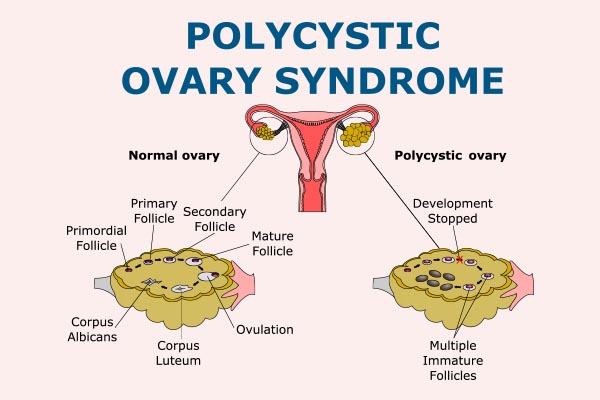One of the common and important condition every girl or young woman has to be aware of and educated about is PCOS/ PCOD
Why?
Unlike earlier generations where we hardly saw 1 or 2 PCOS cases for every 100 women, PCOS has now turned into an epidemic with 1 in every 10 women suffering from the condition.
PCOD often starts without any symptoms and is found incidentally in most of the cases. 50% of PCOD cases go undiagnosed. Nevertheless, it is not something to be brushed aside as some women may be at risk of developing endometrial carcinoma with existing PCOD.
What is PCOD?
Polycystic ovary syndrome (PCOS) is a generic description for a broad spectrum of clinical and morphological finding in women with an endocrine (hormones secreted into the blood by glands) dysfunction and metabolism. Simply said it is a cluster of symptoms and anatomical findings which are due to hormonal and metabolism imbalance.
PCOD Hormonal aspect:
In PCOD – The glands in the brain don’t produce enough GnRH in normal cycles. It causes LH (Luteinising hormone) levels to rise, and FSH (Follicular stimulating hormone) levels to drop. LH causes ovary to produce more testosterone and as a result the ovary is unable to produce an egg
What is the difference between PCOD and PCOS?
PCOD/PCOS are similar in its nature, except syndrome means where other endocrine organs involvement is seen with accompanying diabetes, hypertension, obesity.
If disease is just limited to ovary, it is PCOD.
CAUSES of PCOS
Sedentary lifestyle is the major cause of PCOS. Many girls, right from an early age go through exam competition, long working hours due to homework, technology-based education, more machines for routine activities, less necessity for movement/exercise with the changes in society, urbanisation and migration to cities leading to adoption of a sedentary lifestyle.
An unhealthy, imbalanced or erratic diet (which has more of junk food, processed or refined ingredients), frequently eating such foods, irregular timings of food habits, fads of diets and supplements from unregulated sources seem to be contributing.
Stress can play a major part. In the current competitive world, globalization, the internet and dropping employment rates worldwide, women are dealing with jobs with high demand on performance, facing work pressure, family pressure. All these can also play a role.
Most important one is abnormal sleep pattern. Most people have inadequate sleep these days as they are active on phones, laptops, video games, work from home and even work from bed and are deprived of sleep.
Presence of chemical pollutants in body, through environmental pollution via air, water, food and skin absorption is considered as a contributing factor.
Genetic cause has not been proven yet. You can see that this was hardly there in previous generation women. What was different then was the hands-on, active, wholesome lifestyle and nutrition.
Symptoms
These are common complaints most people present to the clinic:
How to diagnose this disease?
The criteria used to diagnose PCOS is universally known as Rotterdam criteria.
It includes
Complications of PCOS/PCOD:
Treatment is as following:

We offer comprehensive health check-up packages to check the overall functioning of different body systems. Below are more than 15 of the packages that we offer.